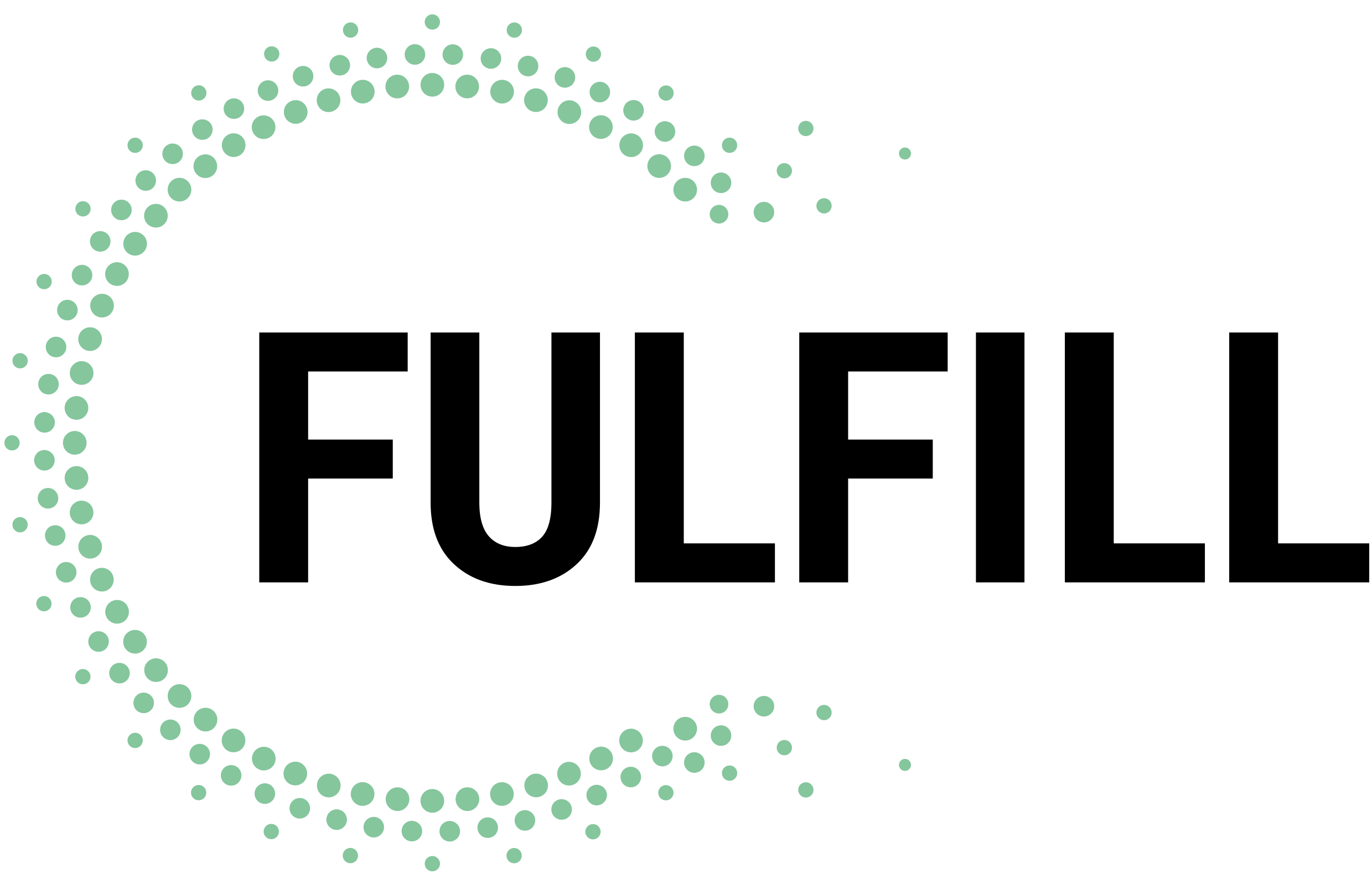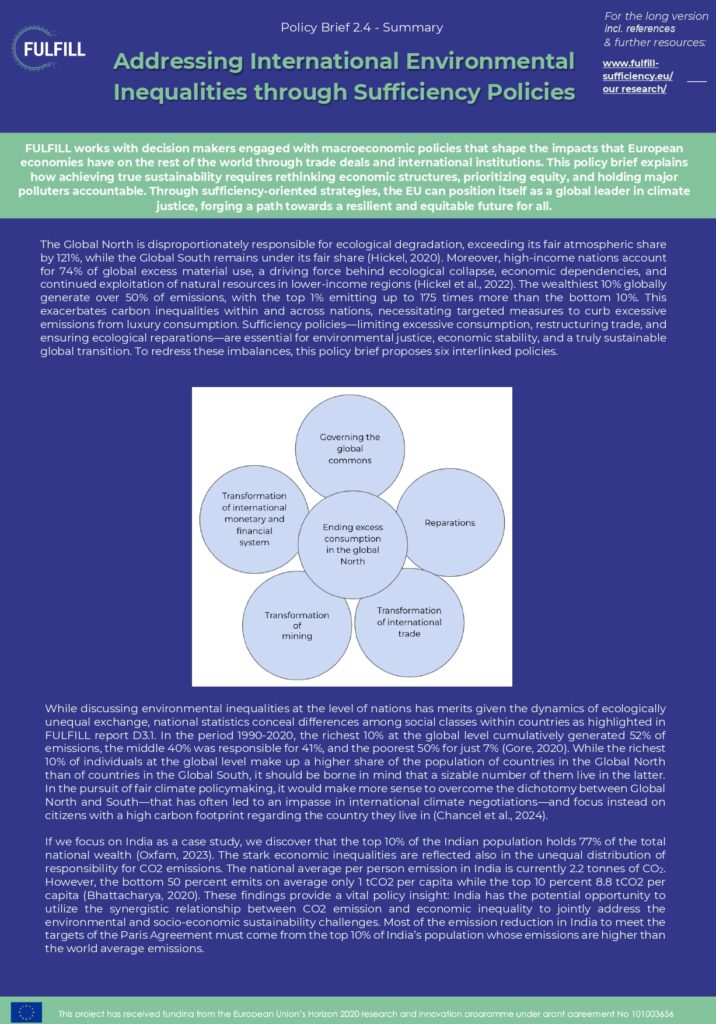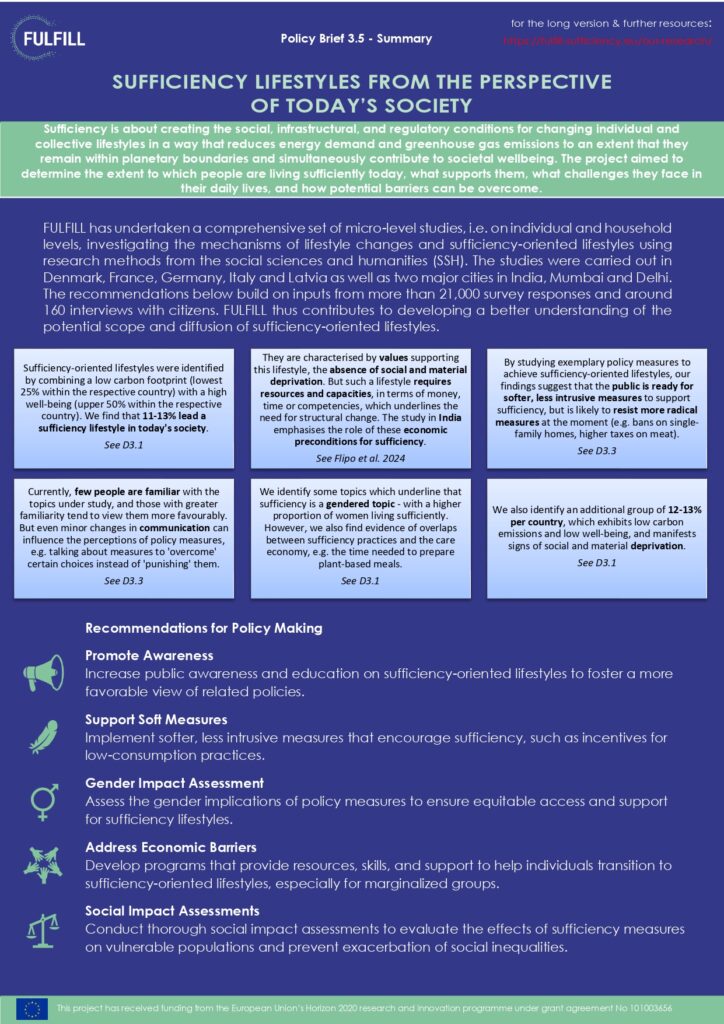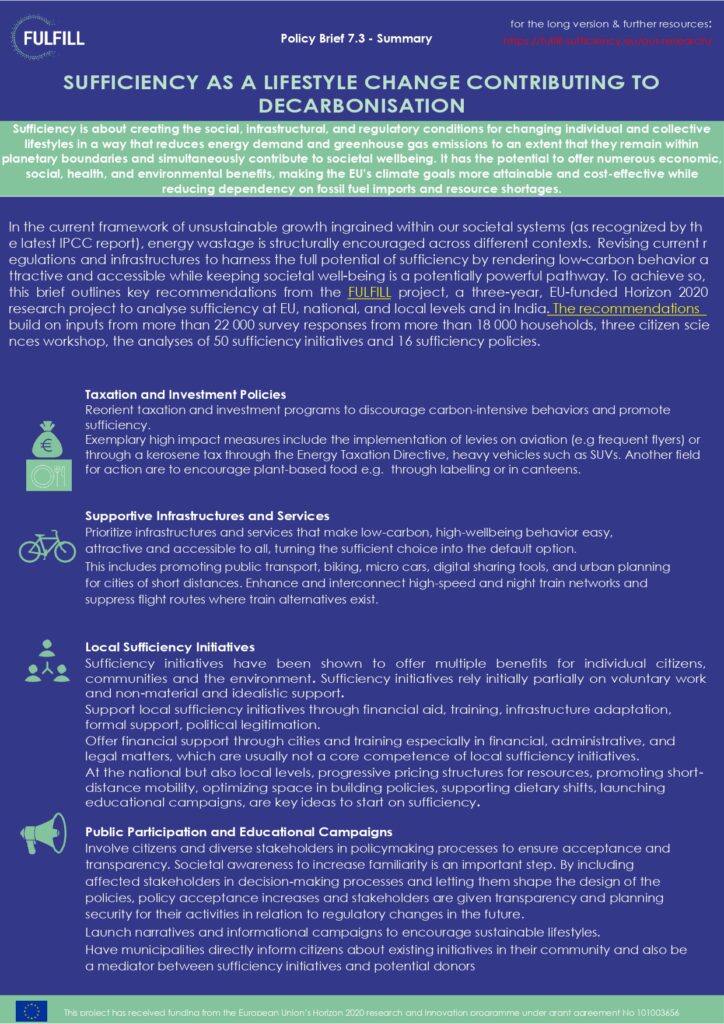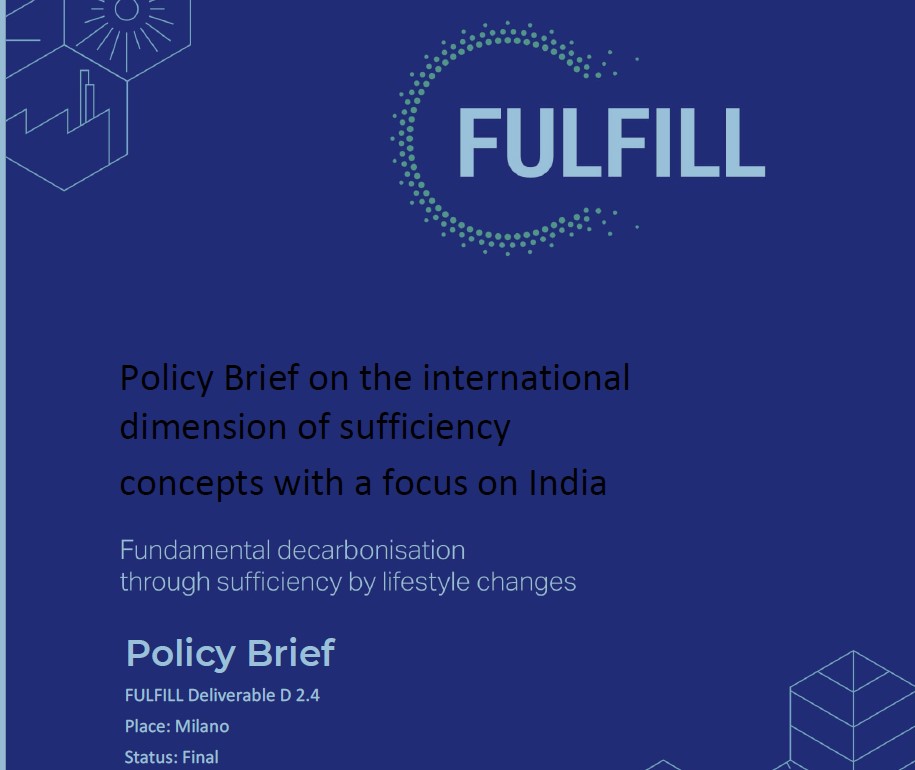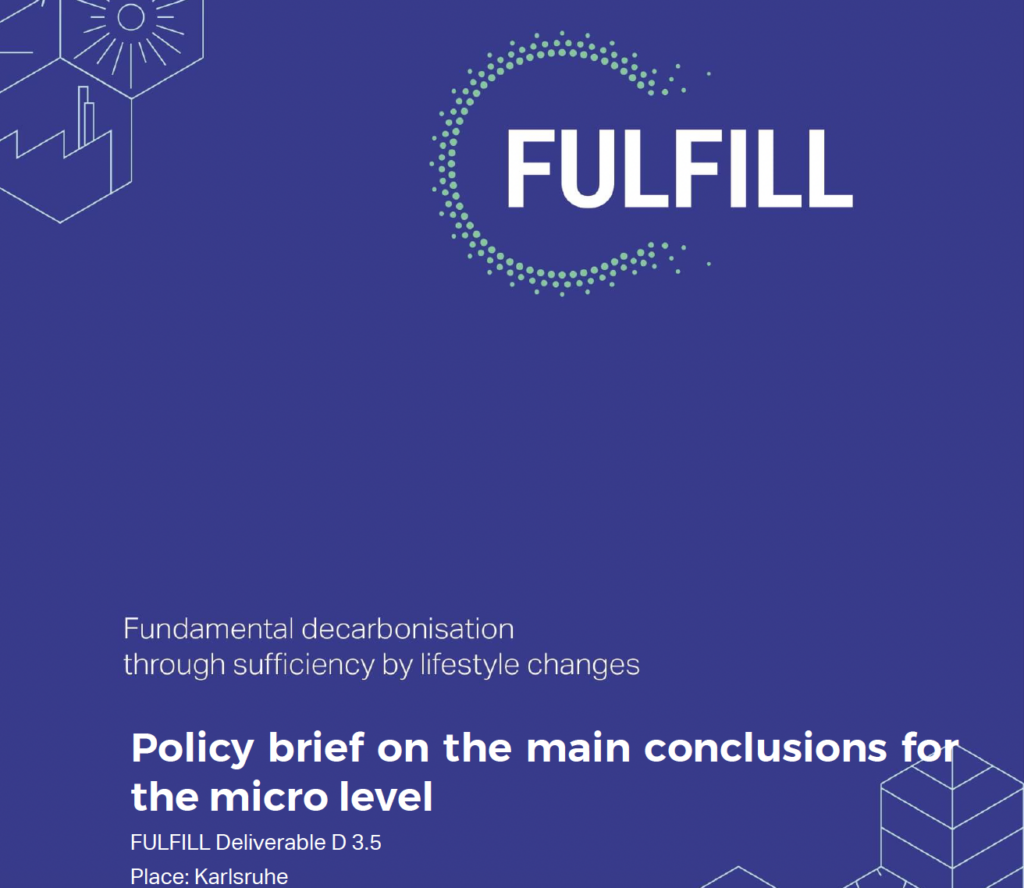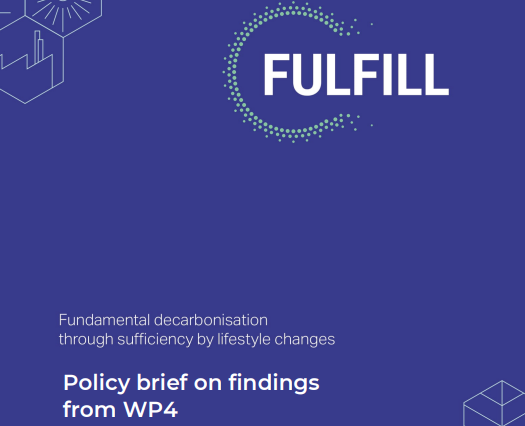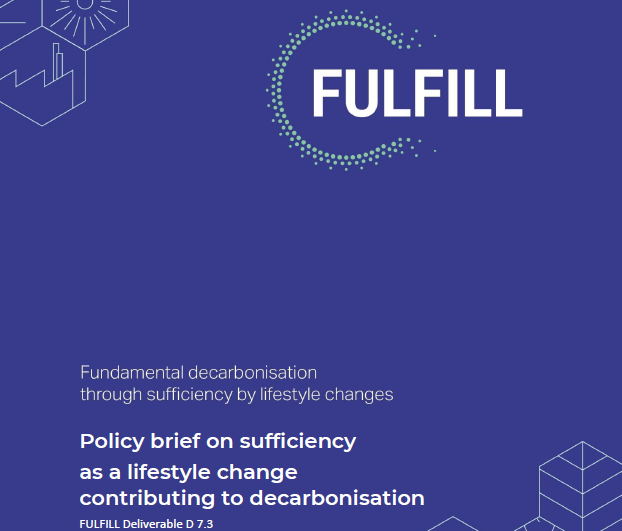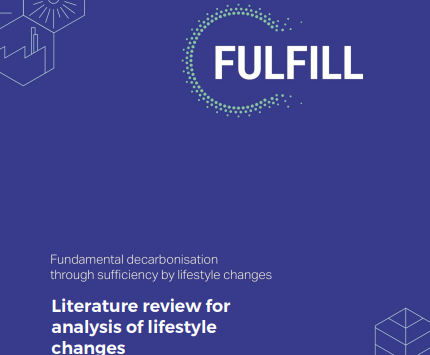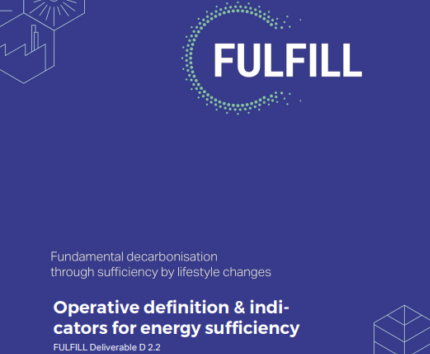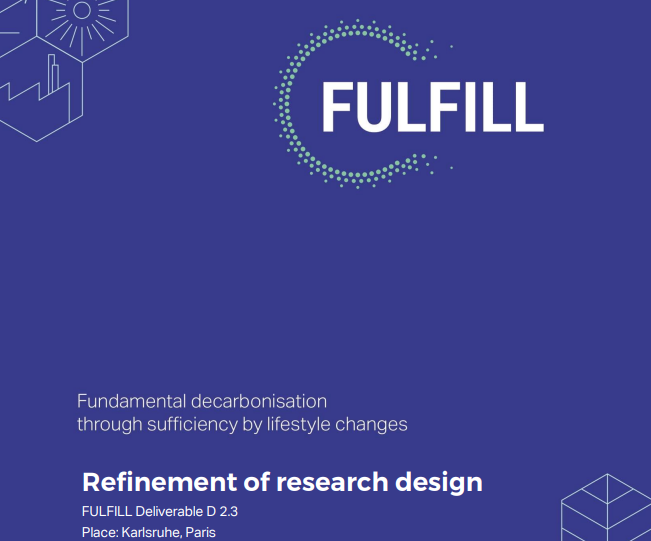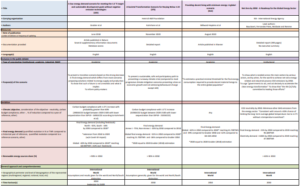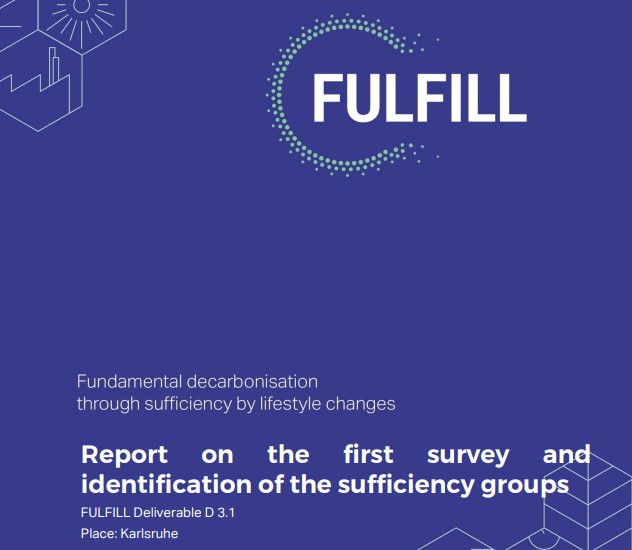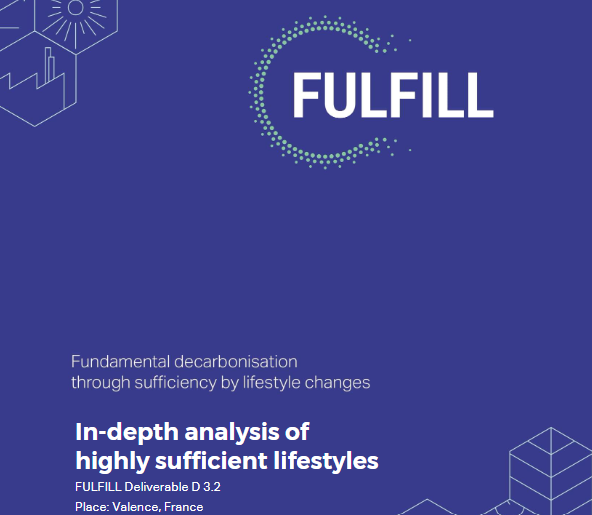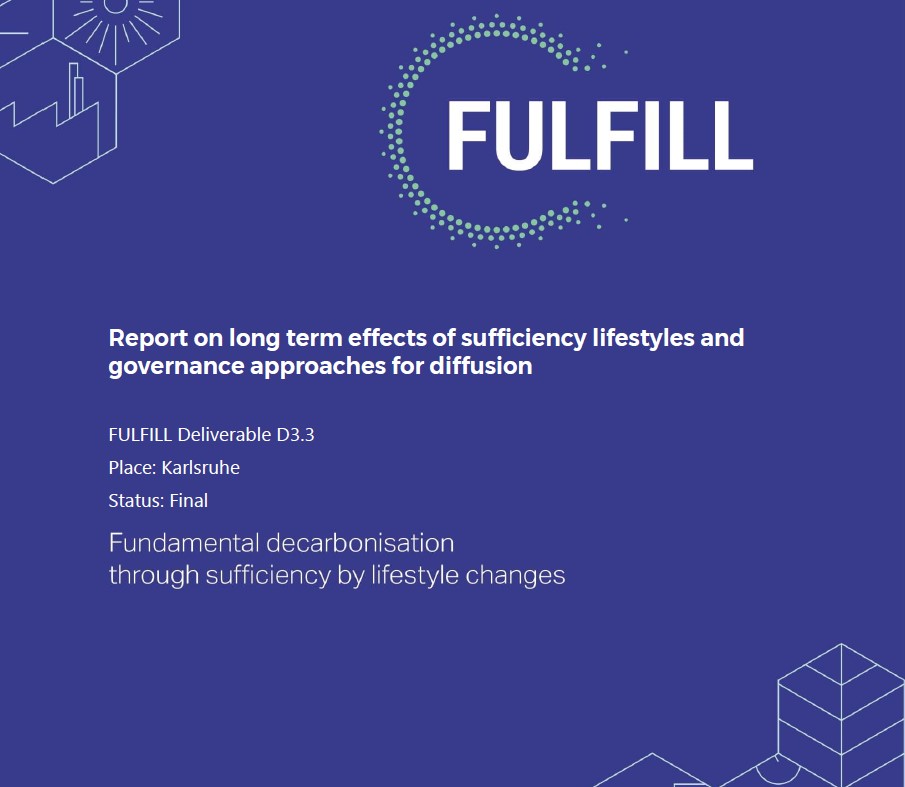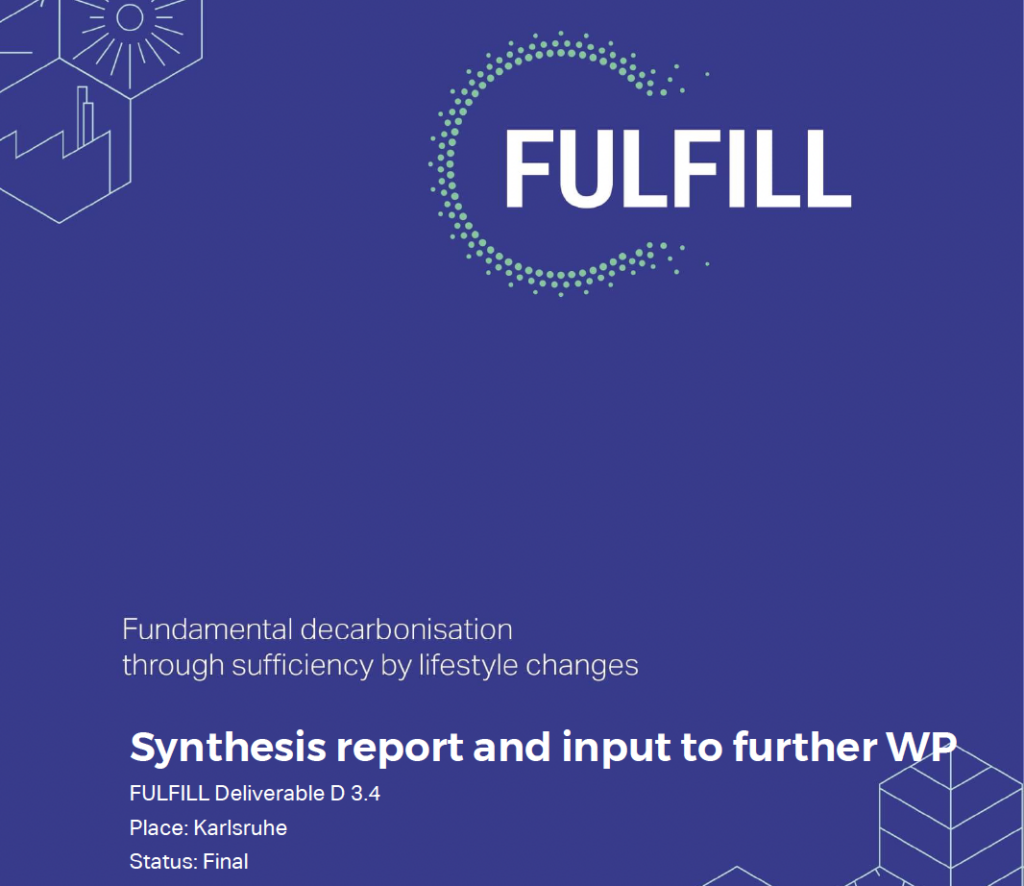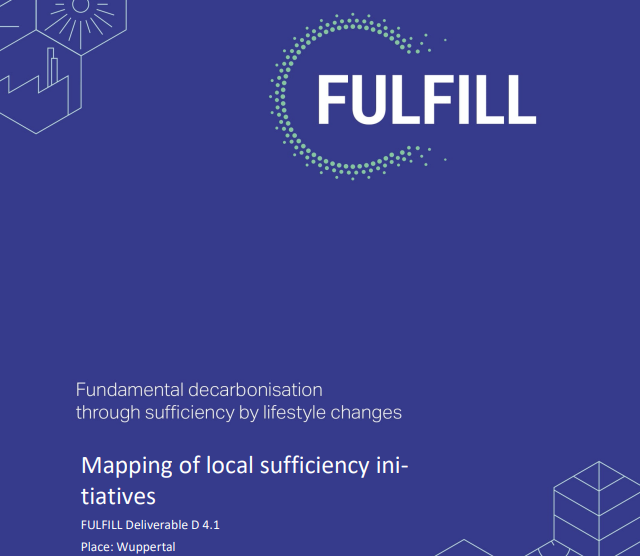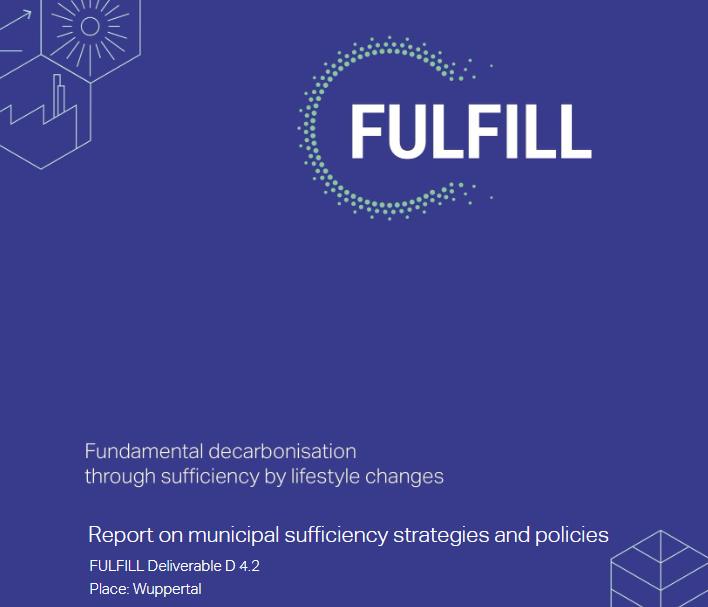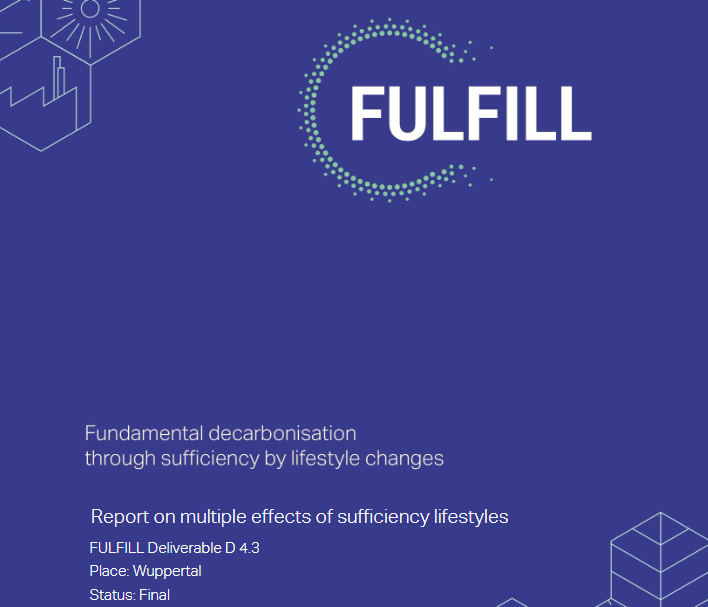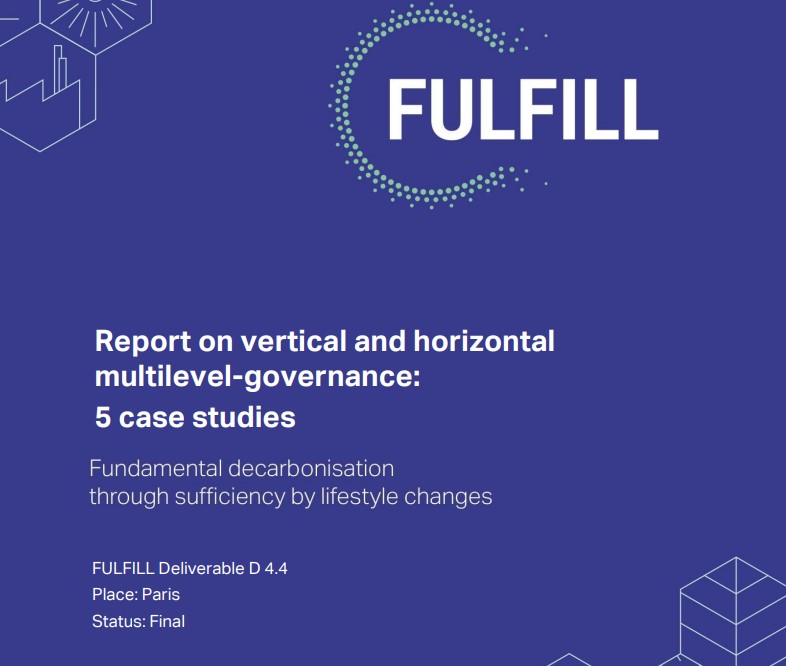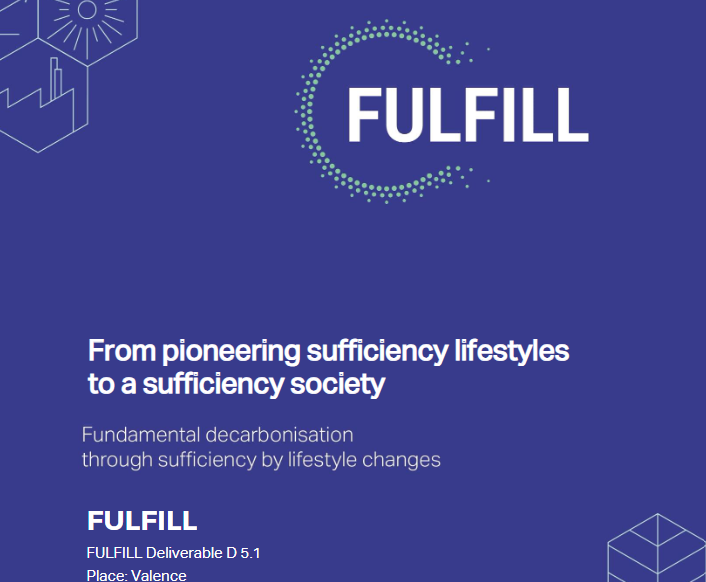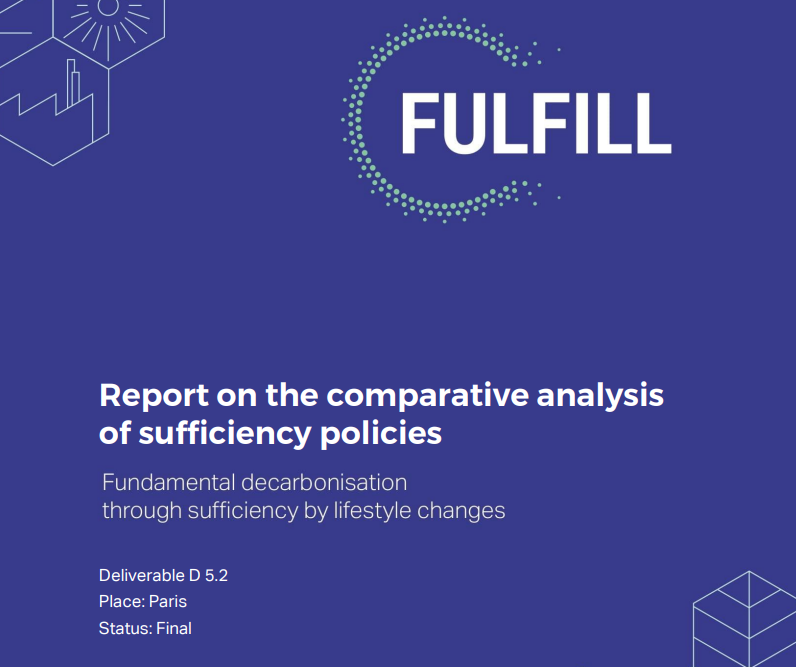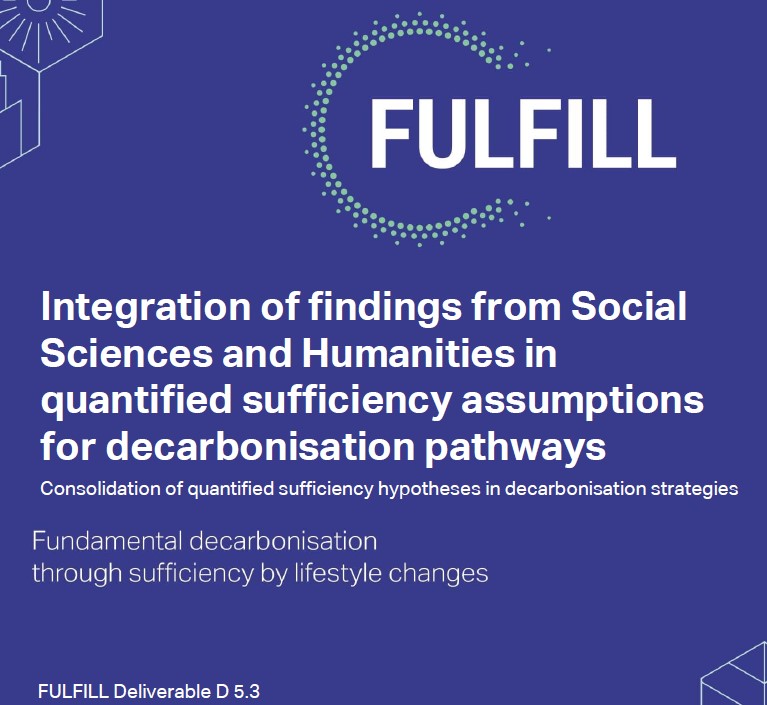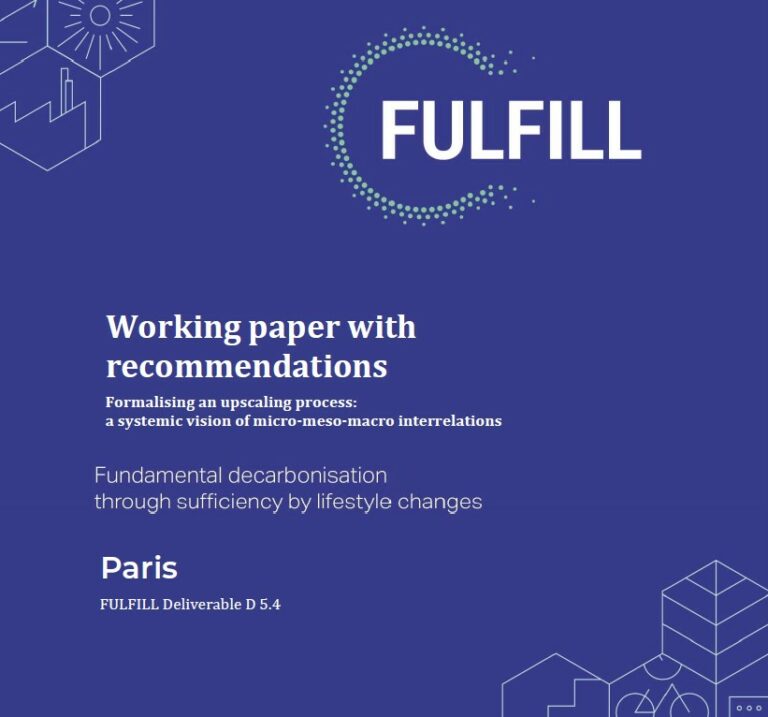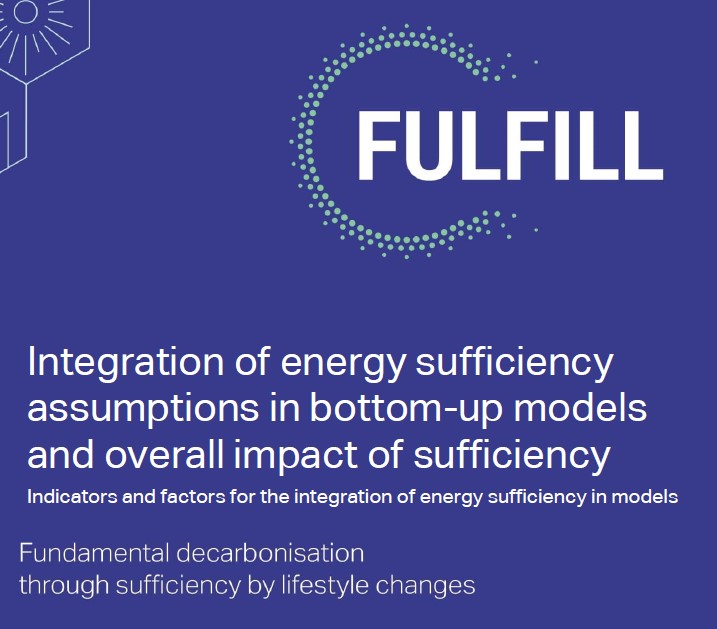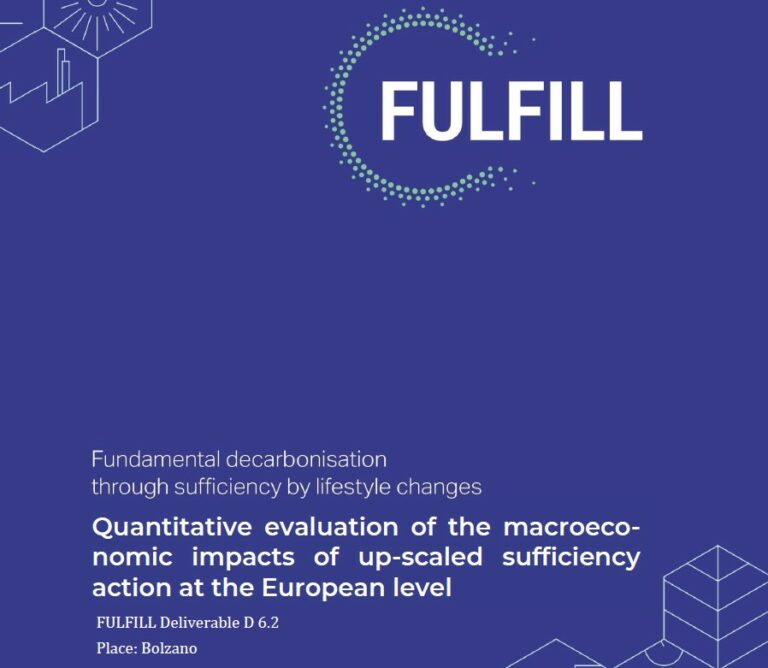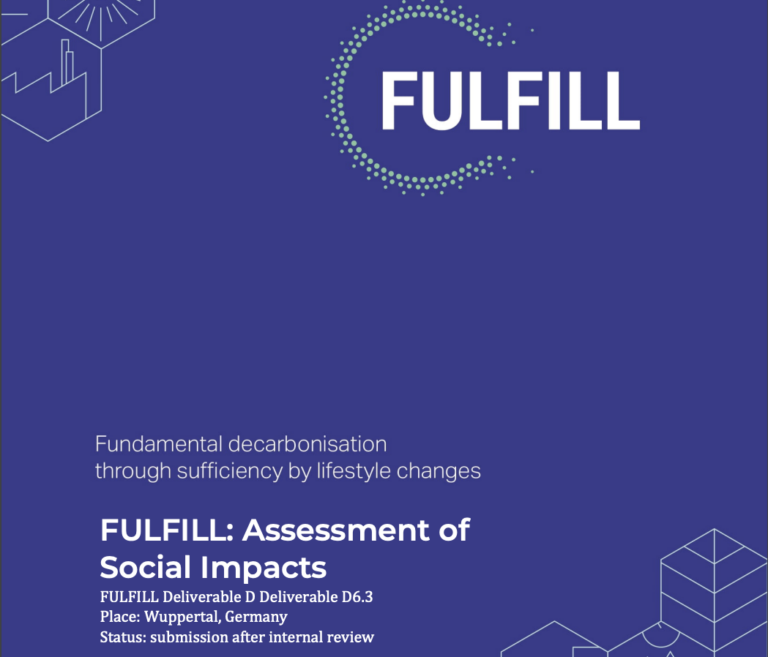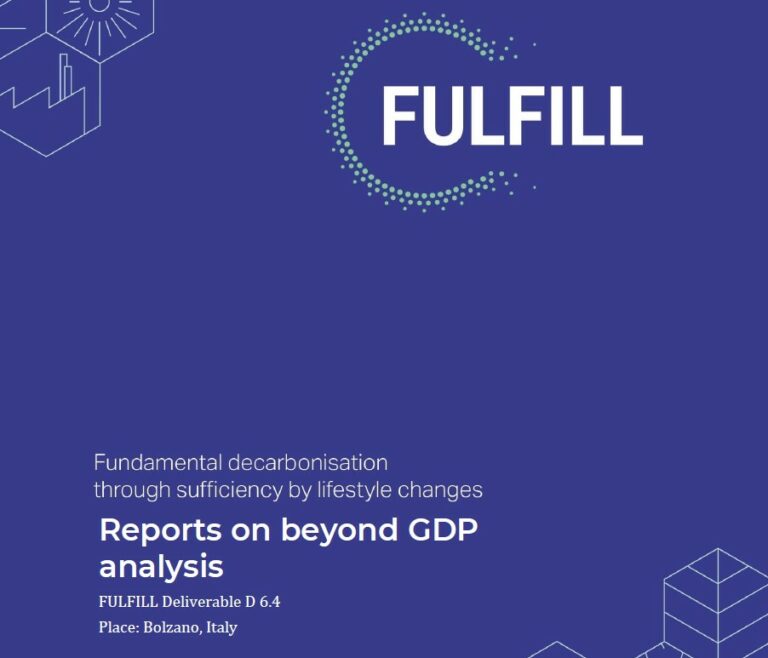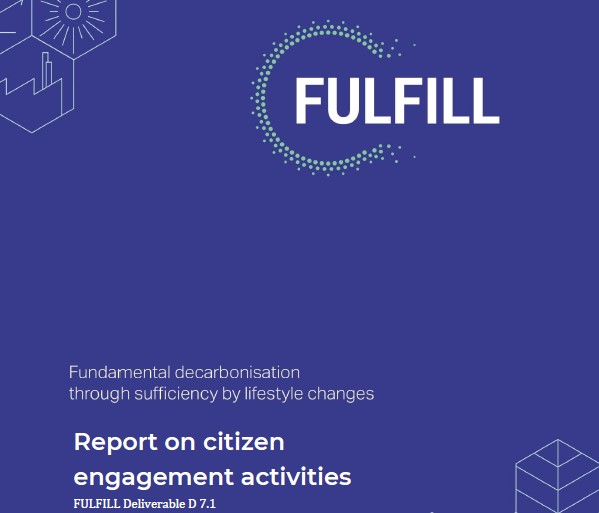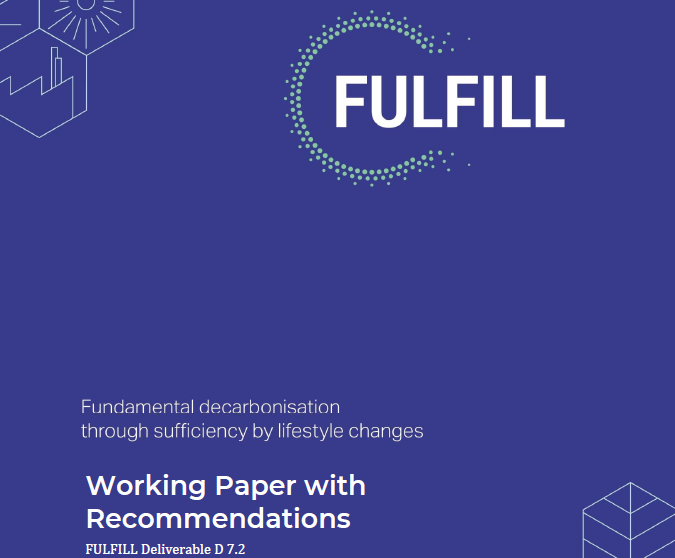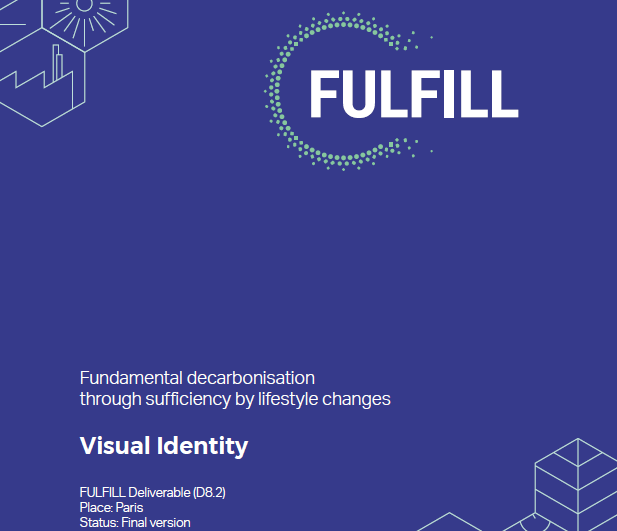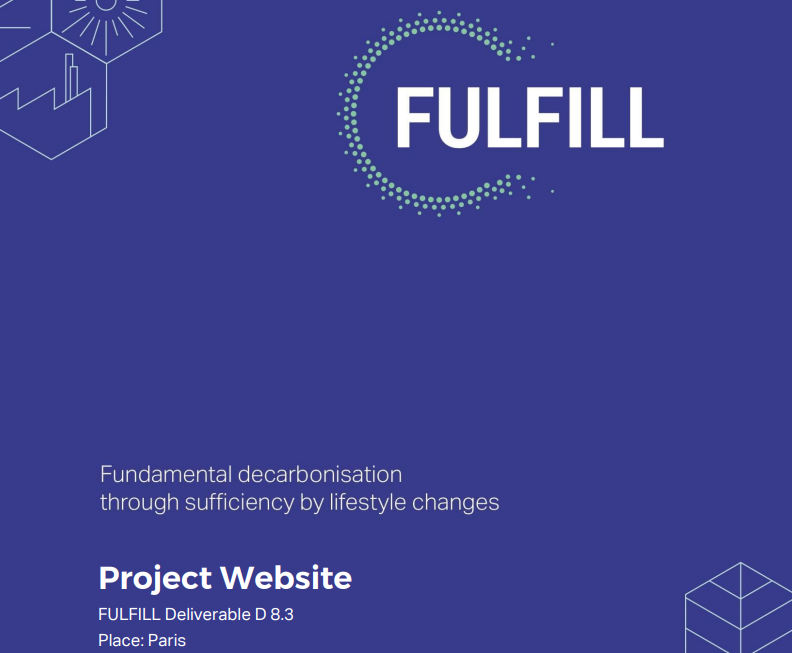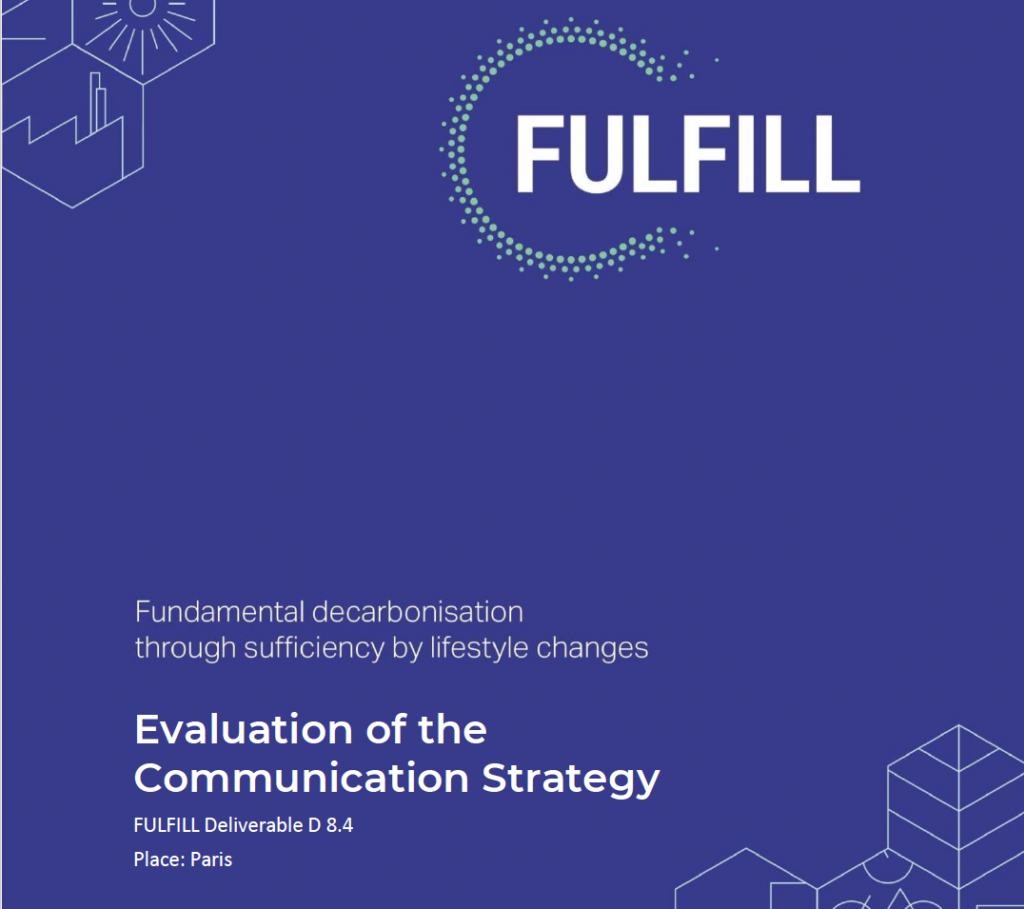Our Research
The FULFILL team is always hard at work spreading the word about sufficiency!
Below, you will find all of our current published research findings for the project. You will also find a variety of resources on the FULFILL project, including an introductory leaflet in English, German, French, Danish, and Latvian. Lastly, our team has also published a variety of academic articles and has appeared in media around Europe as well as given presentations on what it means to be #sufficient!
FULFILL POLICY RECOMMENDATIONS
FULFILL POLICY BRIEFS
FULFILL RESEARCH
ABOUT FULFILL
ACADEMIC ARTICLES
MEDIA PUBLICATIONS
PRESENTATIONS ON SUFFICIENCY
For any additional information about this research or the project or if
you simply wish to get in touch with the researchers and the team, you can
directly contact us by email

Dr. Elisabeth Dütschke
Project coordinator, Fraunhofer Institute for Systems and Innovation Research
Your message will be forwarded to other consortium partners, if your request concerns their project tasks
All Rights Reserved. The sole responsibility for the content of this website lies with the authors. It does not necessarily reflect the opinion of the European Union. Neither the European Climate, Infrastructure and Environment Executive Agency (CINEA) nor the European Commission are responsible for any use that may be made of the information contained therein.
EU funding acknowledgment This project has received funding from the European Union’s Horizon 2020 research and innovation programme under grant agreement No 101003656.
![]()
The website www.fulfill-sufficiency.eu is managed by the Jacques Delors Institute and is subject to the terms of use (available here) and privacy policy (available here) of the Jacques Delors Institute’s website.
Let’s keep in touch
